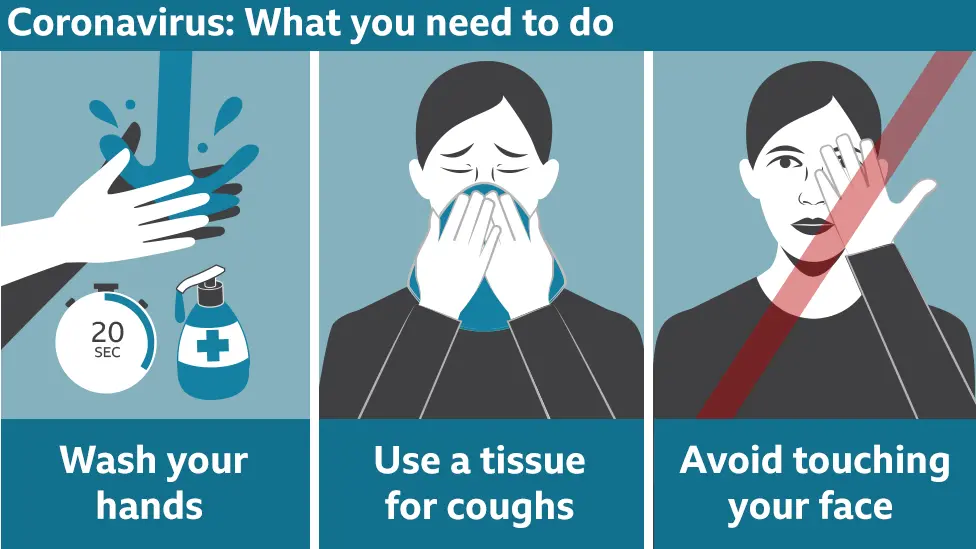Coronavirus: Radio listening booms while music streaming stalls
 Getty Images
Getty ImagesPeople staying at home due to the coronavirus pandemic appear to be listening to more radio rather than music apps, figures suggest.
Global, which owns Capital FM and talk station LBC, said online radio listening had risen by 15%.
The BBC said streaming of its radio stations had risen 18% since last week.
Meanwhile, data from two US analytics companies suggested use of music-streaming apps such as Spotify had dipped by about 8%.
"These figures indicate that the public are turning to radio in times of crisis," a Global spokeswoman said.
BBC Radio and Education director James Purnell said: "People turn to us during significant events for our news and analysis but also for music, entertainment and companionship.

What do I need to know about the coronavirus?
- EASY STEPS: What can I do?
- CONTAINMENT: What it means to self-isolate
- UK LATEST: What's the UK's plan and what could happen next?
- MAPS AND CHARTS: Visual guide to the outbreak
- VIDEO: The 20-second hand wash

"Last week, we saw record live listening on BBC Sounds."
The numbers shared by the BBC and Global are from their own online streaming platforms.
Radio Joint Audience Research (Rajar), the official organisation that measures radio listening figures in the UK, has not released its latest numbers yet.
According to trusted music industry monitor BuzzAngle, US music streaming between 13-19 March fell by 8.8% compared with the previous week.

Rolling Stone magazine, which uses a different data provider, Alpha Data, said streams were down 7.8%.
"There are likely to be multiple causes," said BBC News music reporter Mark Savage.
"Fewer people are commuting to work or going to the gym and shops that use Spotify for their in-store music are closing their doors.
"People who stream music in the office also seem to be turning off and watching Netflix instead and there's a big rise in radio listening - suggesting we're seeking companionship alongside our music."
But not all services are equally affected.
Classical music site Primephonic said streaming had gone up by about 20% since isolation measures had been introduced in Europe.
And any drop in streaming should not mean less money for musicians.
"Streaming royalties are calculated from a fixed percentage of the total subscriber income - so even if fewer songs get played, the pot of money remains the same," said Savage.
Internet use
People in the UK have turned their online attention to tutoring websites, politics, television programmes and gardening, according to cyber-security company Cloudflare.
The company monitors online traffic to more than 25 million websites that pay for its cyber-attack protections.
However, some of the world's biggest websites, including Amazon, Facebook, Google, Netflix, Pornhub and YouTube do not use the service and are not included in its figures.
It said the biggest increase in traffic in March, compared with February, had been seen by websites focused on:
- tutoring (up 400%)
- politics - including political parties and message boards (up 320%)
- television programmes - excluding Amazon Prime, BBC iPlayer and Netflix (up 210%)
- gardening (up 200%)
- children's education (up 160%)
- Christianity (up 140%)
- information about and discussion of board games (up 140%)
Other topics to see rises included:
- books - excluding e-books such as Amazon Kindle (up 110%)
- desserts and baking (up 80%)
- national news - excluding BBC News and others (up 70%)
- pornography - excluding Pornhub and related sites (up 60%)
- Islam (up 50%)
Several topics have also seen a fall in web traffic, including:
- financial planning (down 69%)
- low-cost travel (down 63%)
- football (down 62%)
- home repair and DIY (down 23%)
- buying and selling homes (down 25%)
- dining out (down 18%)
"It's not the most representative sample in the world but it's not bad given our scale, Cloudflare chief technical officer John Graham-Cumming said.
"We handle more than 26 million web properties all over the world.
"We don't have access to the whole world but we have a huge number of websites that use us.
"We handle about 10% of the Fortune 1000 companies, so you get a good sense of what's happening on the internet."
Scam emails
The company said it had also seen malicious activity such as hacking and phishing increase by 37% in March.
"We always see an increase of hacking activity when students are on holiday because a lot of hacking is done opportunistically - and we have sent all our students home," Mr Graham-Cumming said.
"We have created a situation where we have a lot of people who are technically capable and idle, so they may see if they can break into something."
He reminded people not to click on links in unsolicited emails as there had been a significant increase in scam emails being sent.
"We're in a very stressful time and I think bad actors are trying to exploit that," he told BBC News.
